NYC mayoral candidate Maya Wiley offers a vision of criminal justice reform, but past at police dept. watchdog CCRB reveals a more moderate pose
Mayoral hopeful Maya Wiley has packaged herself as a progressive force when it comes to police reform.
She’s touted her time as a civil rights lawyer. She’s vowed to strip the NYPD of $1 billion in funding, and she’s promising to “rewrite the rules of policing.”
Wiley, who worked as Mayor de Blasio’s legal counsel before her run, also served as the Civilian Complaint Review Board’s chairwoman, a perch that gave her power to influence the trajectory of the NYPD and advance reforms there.
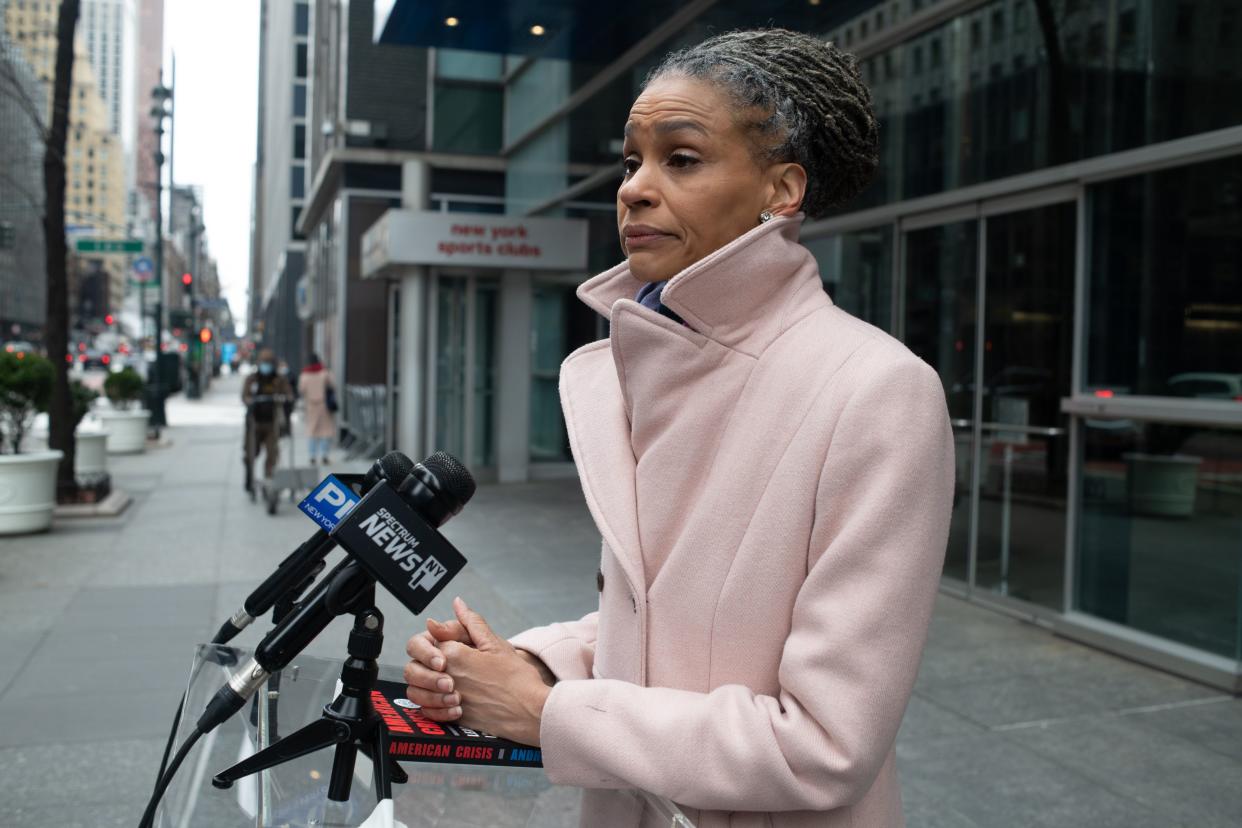
But her record at the CCRB reveals she’s often taken what some view as a middle path. Some police reform advocates go so far as to argue she squandered her time there.
Michael Meyers, president of the New York Civil Rights Coalition, recalled having high hopes when she became board chair, owing to the fact he knew and respected her father, civil rights icon George Wiley.
“He was an impressive fellow,” Meyers said. “Maya’s not her father. I kind of feel bad talking about his daughter like that because he’s dead, but she’s not a George Wiley.”
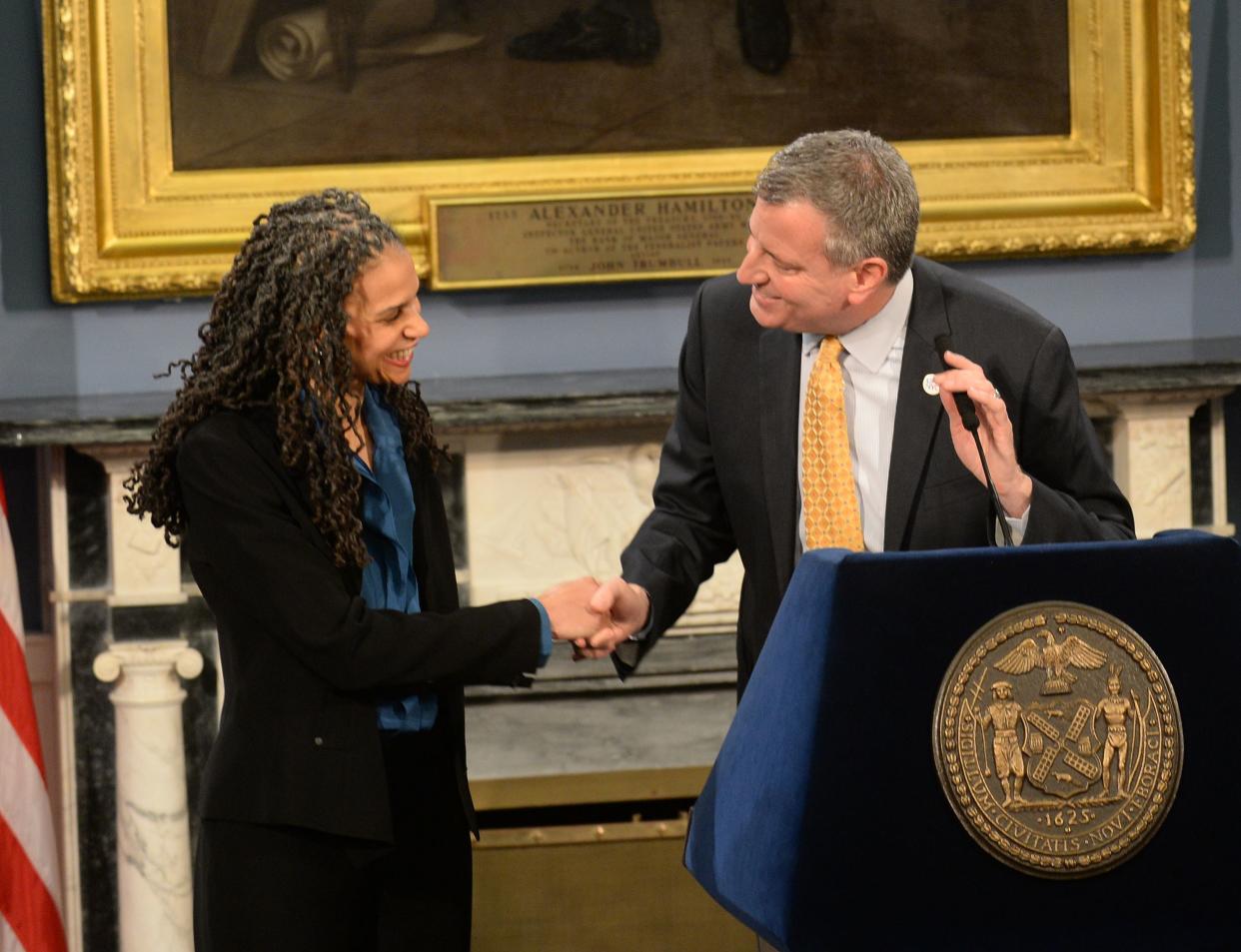
Meyers, who regularly attended CCRB meetings during Wiley’s tenure, called her time there “sad” and described her as a rubber stamp for de Blasio, who appointed her.
“She wasn’t impressive,” he said. “De Blasio didn’t move the needle. And his appointees didn’t move the needle either.”
Wiley has said it was during her tenure that the CCRB substantiated complaints against Daniel Pantaleo, the disgraced former cop who killed Eric Garner.
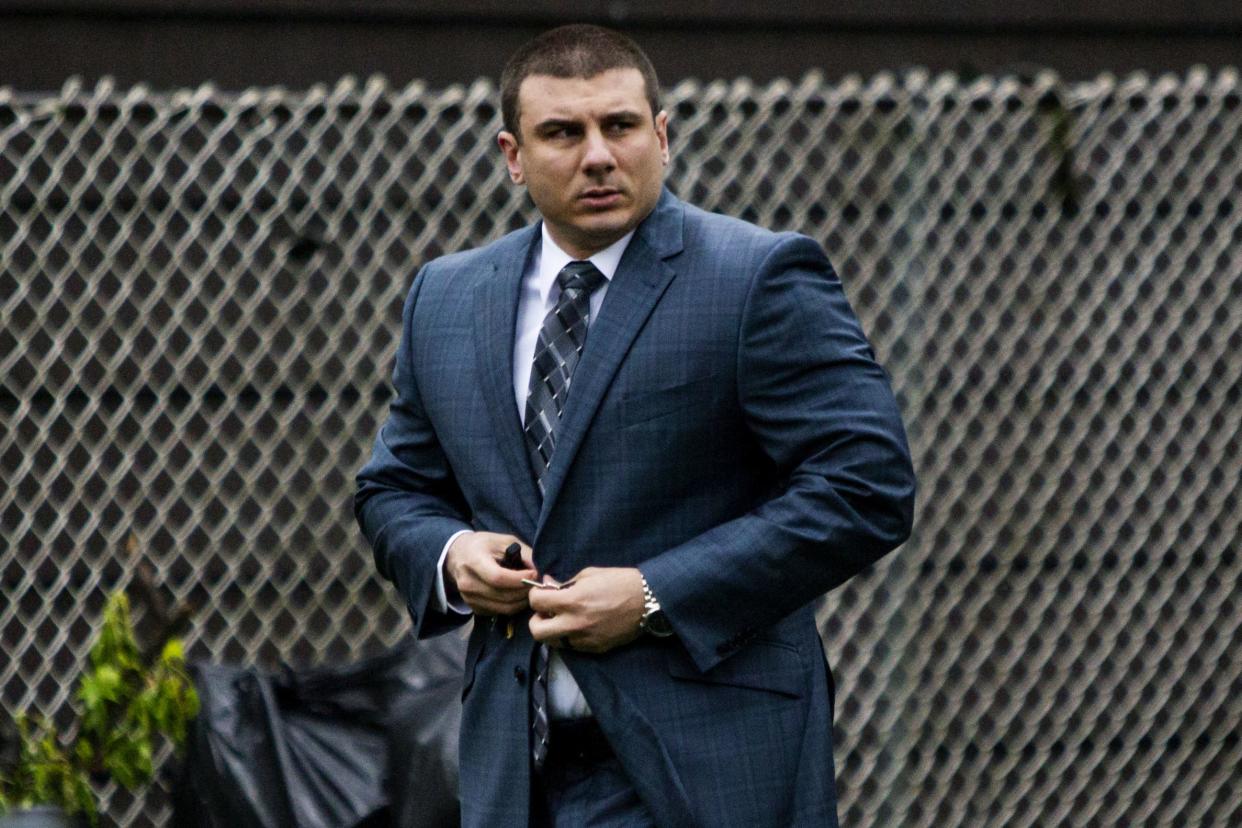
Wiley told the Daily News that when she got to the CCRB it was “a mess” and the Pantaleo case had been in limbo because an ongoing federal civil rights probe had put the city in a holding pattern.
“We had to get that case over to the police department,” she said. “I went through the process to make that happen.”

After the CCRB charged Pantaleo and an administrative judge found his explanations “implausible,” then-NYPD Commissioner James O’Neill fired him in 2019 — five years after the caught-on-tape killing rocked the city.
John Siegal, a CCRB member appointed by de Blasio during Wiley’s tenure, praised her for “singlehandedly” bringing the Pantaleo case before the board.
“She’s responsible for the CCRB carrying out its duties,” he said.
Not everyone agrees. One reformer, who asked not to be named, called it “ridiculous” for Wiley to get credit for Pantaleo’s firing, given the years of work put in by Garner’s mother, Gwen Carr, and others. In February, Carr endorsed mayoral candidate Ray McGuire.
“She was there for one year,” the advocate said of Wiley’s CCRB stint. “I don’t think most folks who were doing police accountability work thought she made a difference.”
Wiley joined the CCRB in July 2016 and resigned in August 2017.
While there, Christopher Dunn, a New York Civil Liberties Union attorney, was unsparing in critiquing her when it came to transparency. In January 2017, he wrote her about the board’s failure to release police misconduct stats, which he called “a troubling pattern.”
“The CCRB’s failure to mention the year-end figures is particularly noteworthy because those figures contain important information about misconduct,” Dunn wrote.
As evidence, he pointed to an 82% increase in misconduct cases over a six-year span.
“This dramatic increase in substantiated misconduct immediately raises the prospect of a jump in actual police misconduct and requires close attention,” he wrote.

But Wiley has made transparency a selling point while on the campaign trail. When asked about Dunn’s past attack, she said a report may have been released late, but the data was already available in monthly CCRB reports.
“There was no transparency issue with being able to get the data,” she said.
She then noted that while at the board, she made its meetings more accessible by holding some away from the CCRB’s downtown meeting place in areas laden with complaints against cops.
“If you’re in the South Bronx, you can’t come all the way down easily to 100 Church St. at night,” she said. “We wanted to make it easy for folks in the community to actually come.”
Since announcing her run, Wiley has appeared to take a decidedly adversarial stance when it comes to the NYPD.
She said she’d fire Commissioner Dermot Shea and called her agenda “the most comprehensive and substantial police reform proposal ever issued by a major candidate for mayor.”
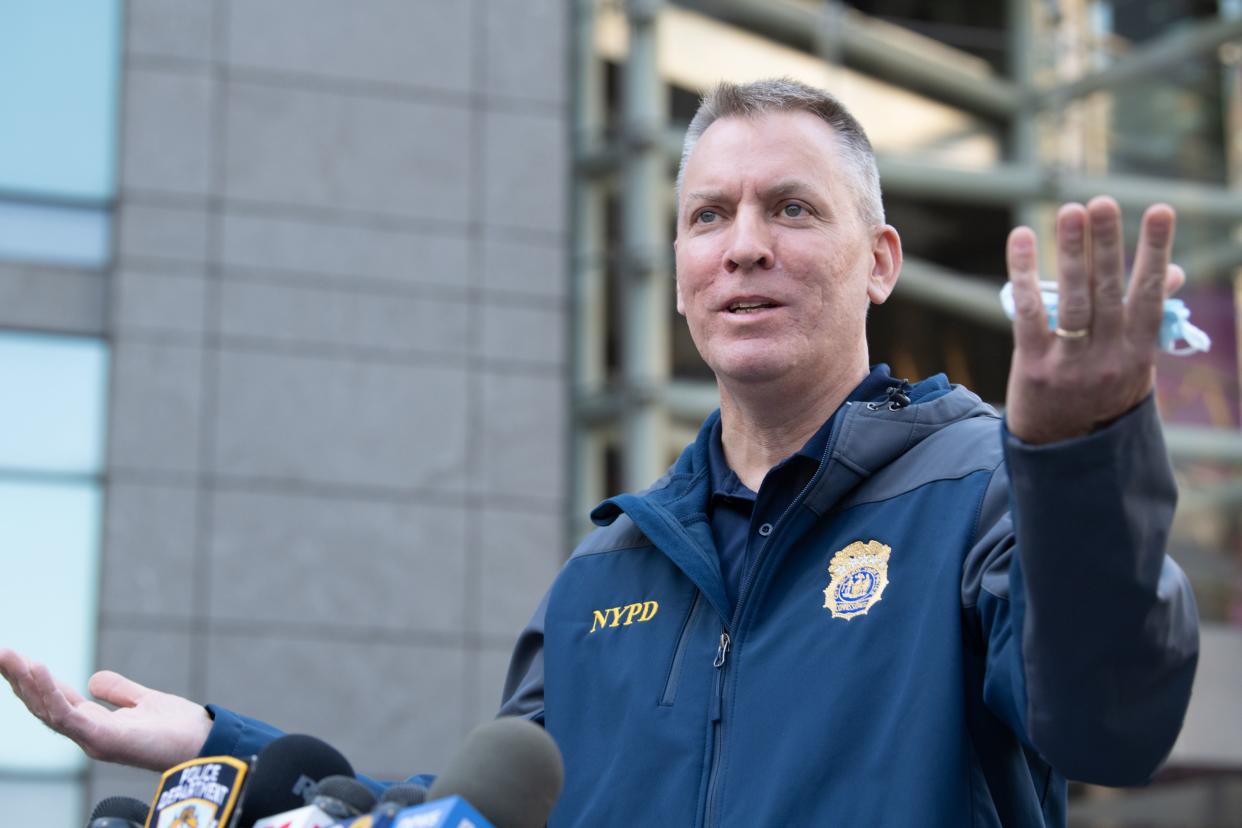
Last month, she said the next NYPD commissioner should be a civilian.
“We cannot continue to reflexively promote from an organizational culture that is broken,” she noted.
Wiley has also been quick to pounce on a rival, Brooklyn Borough President Eric Adams, a former NYPD captain, for what she’s framed as his cozy relationship with police unions.
But records show that in 2016 the CCRB’s “concurrence” rate — the percentage of times it and the police commissioner agree on disciplinary matters — hit 83%, a point of pride for Wiley.
“This is the highest concurrence rate in the agency’s history, and it reflects both the effectiveness of the CCRB’s advocacy and the police commissioner’s commitment to holding officers accountable,” she wrote in 2017.
When asked about that statement, Wiley brushed away any significance, saying the CCRB is “neutral” and isn’t meant to side with cops or advocates.
“We can’t make the police commissioner concur any more than the police commissioner can make us agree with the police commissioner,” she said.
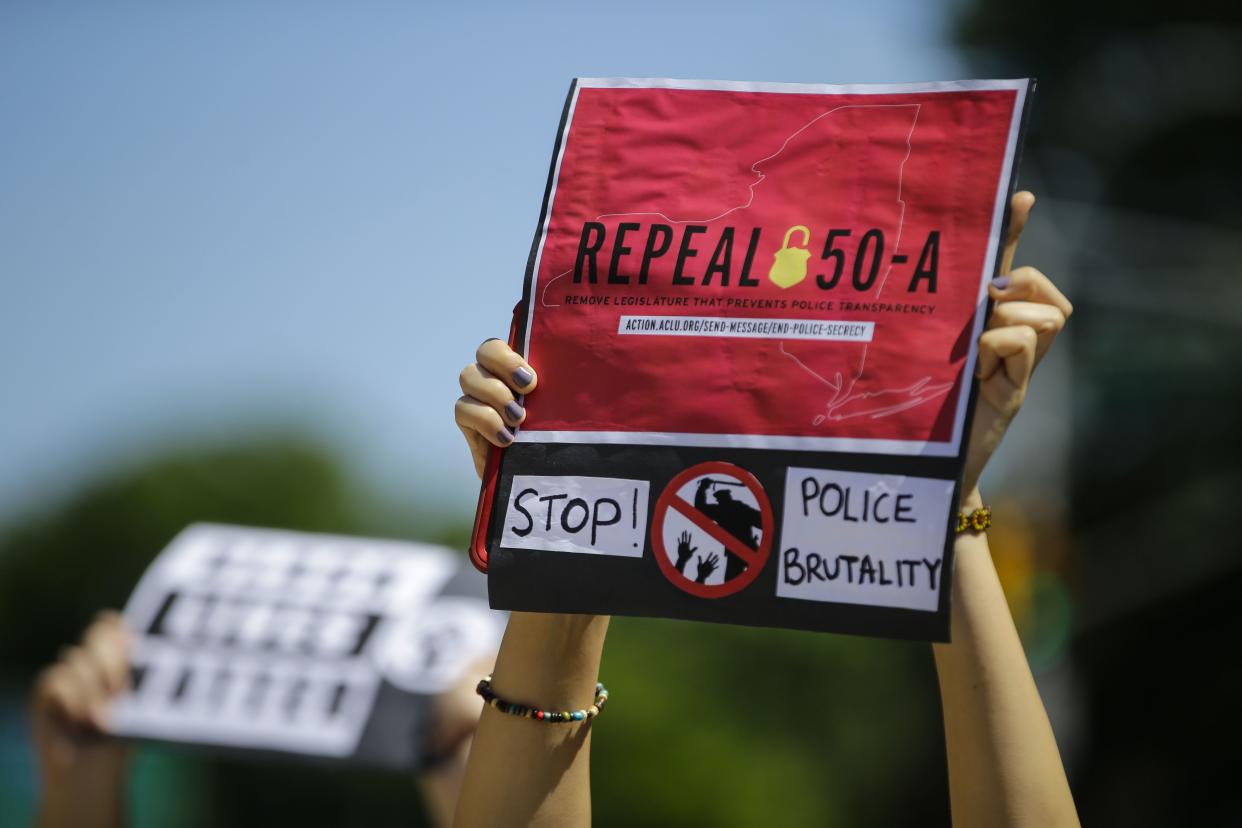
Wiley didn’t appear too upset at the decision to suddenly bar the release of NYPD disciplinary records in August 2016 though, either. When the NYPD halted the practice, the city cited the state’s obscure 50-a statute, which barred such records from being made public.
Instead of criticizing the shift from transparency, Wiley took the tack of her former boss, de Blasio, saying at a 2017 CCRB meeting they were working “to change state law so that we can make more of those records available.”
Wiley told The News recently she had no other option.
“If I had been mayor I’d say, ‘Sue us. We’re going to keep posting it,’” she said.
The statute was ultimately repealed last year, a decision upheld February in federal court.
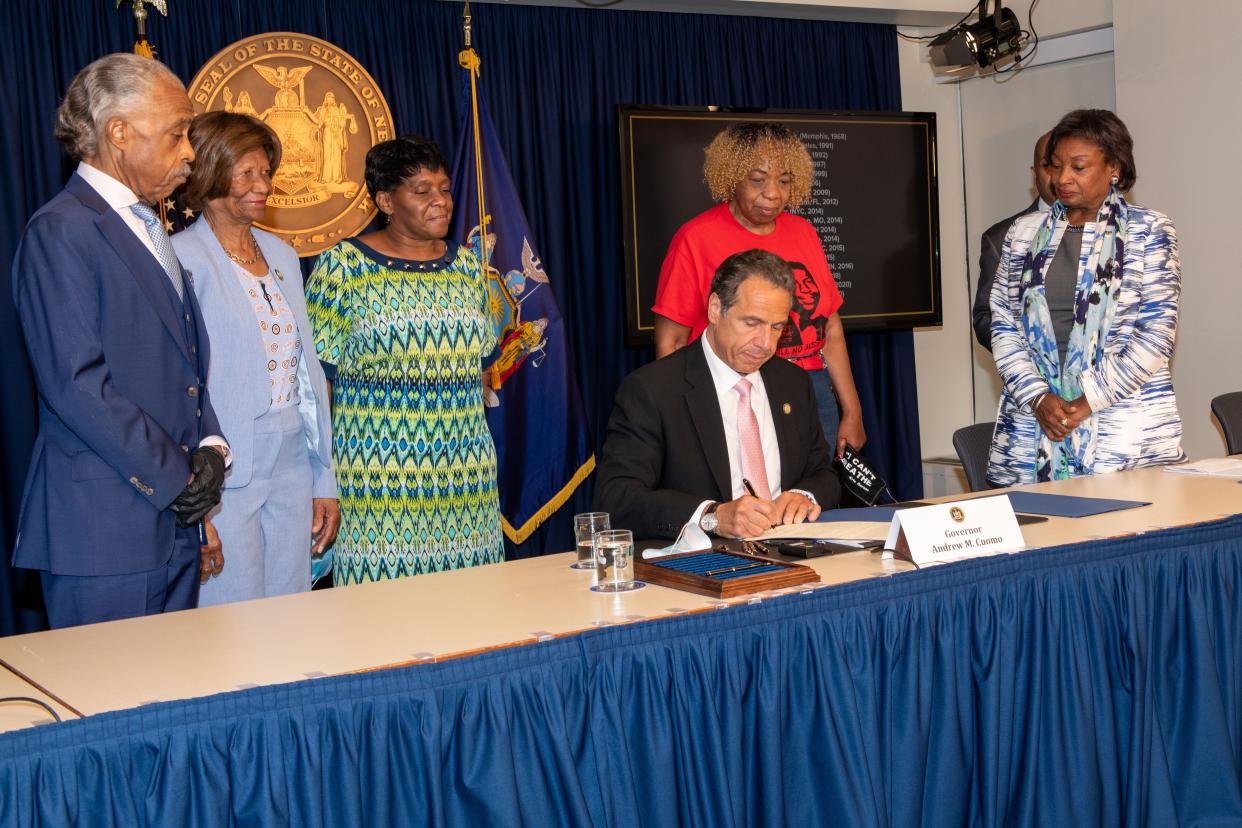
Wiley and the CCRB also came under fire for revising a leaked draft report about the NYPD’s use of tasers after the final version downplayed one recommendation and excluded another.
That news led Dunn to put Wiley on notice about “a conscious effort to, in my view, hide things that are perhaps controversial and critical of the police.”
Months later, Wiley conceded the CCRB “created optics that are unfortunate” in its handling of the report.
Recently, she told The News the report was revised because the data revealed only three substantiated allegations of taser misuse, which didn’t support the draft’s conclusion.
“I could not credibly put that report out,” she said. “I also didn’t want to withhold the report because people knew a taser report was coming, because that would look like we were doing something funky.”
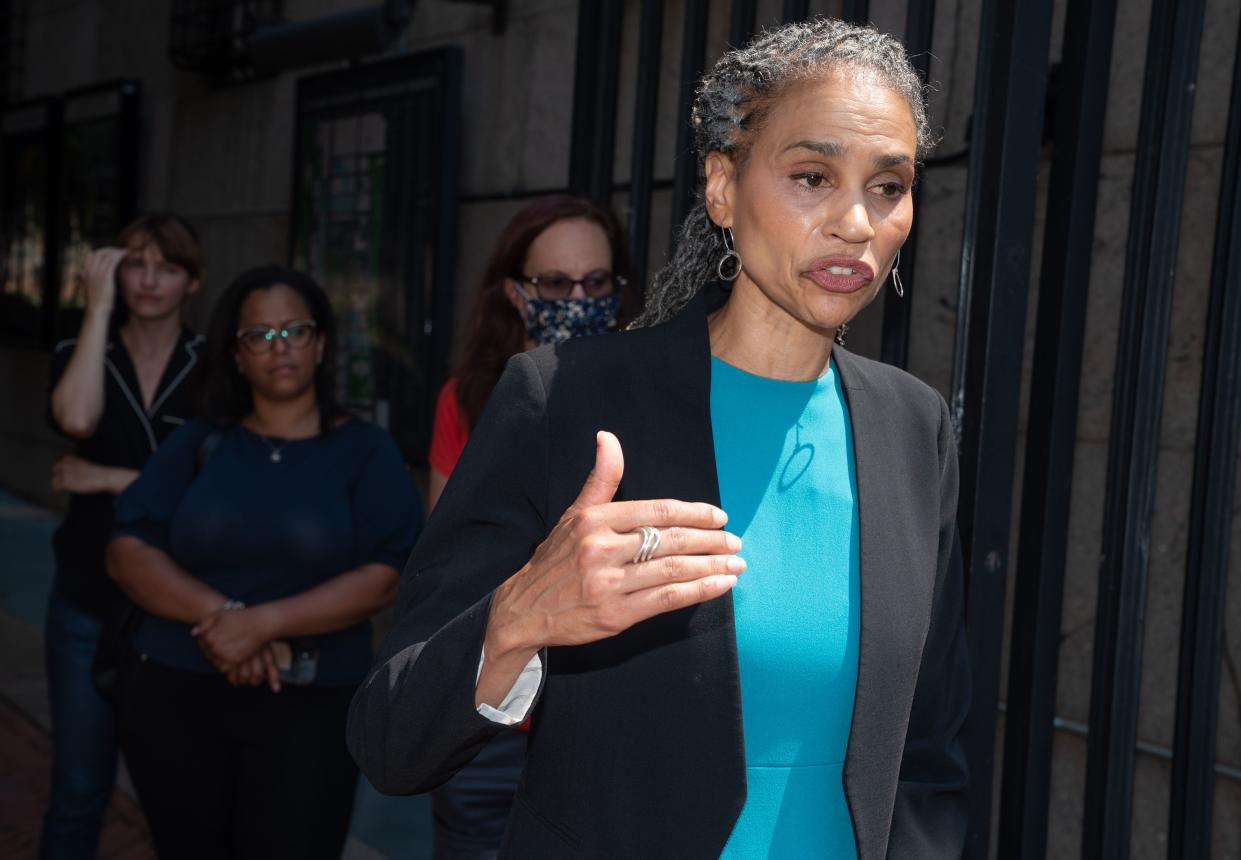
Another leak, this one involving Pantaleo’s disciplinary file, prompted the leaker to resign, and Wiley to thank colleagues for identifying the source. The staffer stepped down within a day of divulging the records, leading some to question why that matter had been resolved so quickly while Pantaleo’s case dragged on so long.
“I personally want to thank the staff for their quick and effective work in identifying the source of the leak,” Wiley said at an April 2017 meeting. “I will tell you firmly that I am extremely pleased with how the staff managed it.”
Wiley stands by those words, noting that city lawyers had instructed the CCRB not to release the data.
“We have to abide by the law,” she told The News. “You know what police officers want to do? Whatever the hell they want. When they’re in a hard situation, they want to do what they want to do. And sometimes you can understand why they’re scared, or why they are angry, or why they’re frustrated, or why they want to drop an F-bomb on someone, but it doesn’t mean they can. So we have to hold ourselves to the law, too, if we’re going to ask that they do.”
